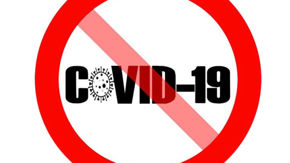Random fun facts catch us off guard in the best possible way. They’re unexpected or unusual bits of knowledge from the worlds of science, history, and pop culture that delight and entertain us—and anyone we share them with. But these interesting facts aren’t just amusing pieces of information that will make you a whiz at answering trivia questions: They’re legitimately fascinating, and once you get started, you’ll want to keep reading until your curiosity is satisfied.
Whether you’re into weird facts that almost don’t sound true (but totally are), random trivia, science trivia, animal trivia, movie trivia, and/or book trivia, you’ll find plenty of new information here. And if you’re looking for trivia questions for kids to entertain them during a family dinner or a long road trip, we’ve got plenty of those, too!
Fact: There’s enough gold inside Earth to coat the planet

RD.COM, GETTY IMAGES (2)
Turns out, there’s quite a bit of gold on—or, really, in—our planet: 99 percent of the precious metal can be found in the Earth’s core, Discover Magazine reports. How much is there? Enough to coat the entire surface of the Earth in 1.5 feet of gold.
Fact: Human beings can use only a small fraction of Earth’s water

RD.COM, GETTY IMAGES (2)
In school, we were taught that most (specifically, 71 percent) of the planet’s surface is covered in water. While that’s true, humans can use only 0.007 percent of that water, according to National Geographic. That’s because only about 2.5 percent of Earth’s water is fresh water, and only 1 percent of that is accessible. The rest makes up glaciers and snowfields.
Fact: Japan has one vending machine for every 40 people

RD.COM, GETTY IMAGES (2)
Japan is thought to have one of the highest densities of vending machines in the world, with one for every 40 people in the country. While most sell various types of beverages, others feature ice cream, noodles, and disposable cameras.
Fact: Lemons float, but limes sink

RD.COM, GETTY IMAGES (2)
Because limes are denser than lemons, they drop to the bottom of a glass, while lemons float at the top. Out of all these random fun facts, this one’s been in front of our faces (or rather, in our glasses) this whole time!
Fact: Some fungi create zombies, then control their minds

RD.COM, SHUTTERSTOCK (2)
The tropical fungus Ophiocordyceps infects ants’ central nervous systems. Once it has been in an insect’s body for nine days, it has complete control over the host’s movements. According to National Geographic, it forces the ant to climb trees, then convulse and fall into the cool, moist soil below, where fungi thrive. Once there, the fungus waits until exactly solar noon to force the ant to bite a leaf and wait for death.
Fact: Samsung tests phone durability with a butt-shaped robot

RD.COM, SHUTTERSTOCK (2)
People stash their phones in their back pockets all the time, which is why Samsung created a robot shaped like a butt to “sit” on their phones to make sure they can take the pressure. Believe it or not, the robot even wears jeans.
Fact: Peanuts aren’t technically nuts

RD.COM, SHUTTERSTOCK (2)
They’re legumes. According to Merriam-Webster, a nut is only a nut if it’s “a hard-shelled dry fruit or seed with a separable rind or shell and interior kernel.” That means walnuts, almonds, cashews, and pistachios aren’t nuts either. They’re seeds.
Fact: Armadillo shells are bulletproof

RD.COM, SHUTTERSTOCK (2)
In fact, one Texas man was hospitalized when a bullet he shot at an armadillo ricocheted off the animal and hit him in the jaw. That’s a totally true animal tidbit.
Fact: Firefighters use wetting agents to make water wetter

RD.COM, SHUTTERSTOCK (2)
The chemicals reduce the surface tension of plain water so it’s easier to spread and better soaks into objects, which is why it’s known as “wet water.”
Fact: The longest English word is 189,819 letters long

RD.COM, SHUTTERSTOCK (2)
We won’t spell it out here, but the full name for the protein nicknamed titin would take three and a half hours to say out loud. While this is, by far, the longest word in English, the longest word in the Oxford English Dictionary has 45 letters, and the longest made-up word has just 28.











